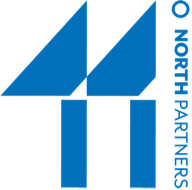Then the Trump years happened. And today, more than 50 long and exhausting months after our post, the words of Amanda Gorman, the United States’ first-ever youth poet laureate, illuminated a united path forward during President Biden’s inauguration ceremony. The power of the message and the moment was sublime. Gorman rhythmically recalled the chapter we’ve lived through, and more importantly, she called us to forge a union with purpose for the future – “to compose a country committed to all cultures, colors, characters and conditions of man.”
In her challenge to “lift our gazes, not to what stands between us, but what stands before us,” every leader, in every sector, should hear a calling. Not to be partisan, not to take sides, and not to hunker down and avoid conversation. But to truly see the people we lead. To open the door to conversation, even when it’s uncomfortable. To foster connection and listen to understand. To seek facts and truth.
For some leaders, these awkward and sometimes heated conversations come naturally, and they’ve been doing it since the start of the pandemic or longer. For others, talking about anything related to politics or diversity is anathema to the workplace, and they have no idea where to start. Some grew up professionally in the days when these topics were simply not deemed appropriate in any work-related setting, so they’ve learned to avoid them at all cost.
But the great lesson of a year dominated by the pandemic and racial reckoning is that business leaders do have a place in politics and diversity – not to advocate for one side or the other but to acknowledge and show compassion for the hardships and heartache of the people they lead. Hardships and heartaches that are often connected to politics and diversity.
In the spirit of unity, just as we did in 2016 but with a much deeper understanding of just how damaging division can be, we offer the following steps for leaders as they zoom into their next team interaction:
- Stay connected to your team. Make space for dialogue. Don’t shy away from topics like the riot at the U.S. Capitol or inauguration events. Let people know it’s safe to talk openly about what’s happening in the world and how it’s affecting their lives.
- Don’t try to persuade people to your point of view. Rather, seek to understand theirs. Be curious and open to new perspectives – and encourage others to do the same. Simply say “Can we talk about x? I’d love to understand where you’re at and what you need.”
- Focus on facts. While the line between fact and fiction has blurred beyond recognition, truth still matters. Seek to find it, not through emotional sparring, but through respectful debate, grounded in facts and respect.
- Be vulnerable. None of us is beyond blame for the current state of polarization in our world. Many of us have experienced an awakening during the past year that has laid bare our past failings. Don’t be afraid to share your learnings with your team. As Maya Angelou, a past poet laureate said, “Do the best you can until you know better. Then when you know better, do better.”
- Connect the dots. As you listen to, learn from and support your team, help them see why these conversations matter for your business and how the positions your company takes support your purpose and values.
